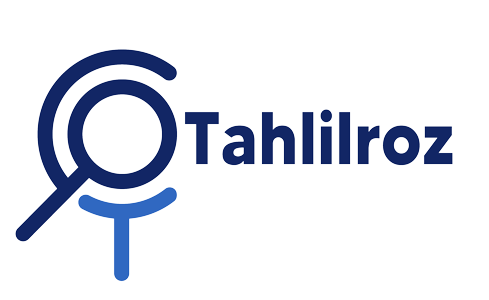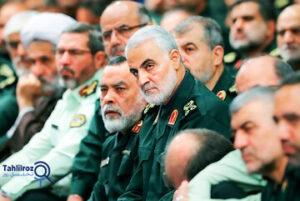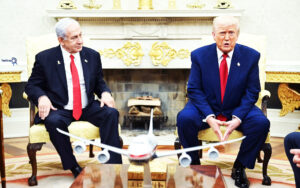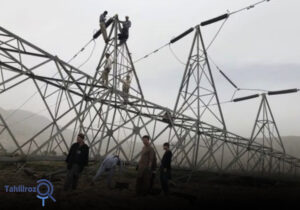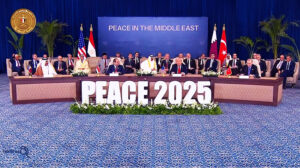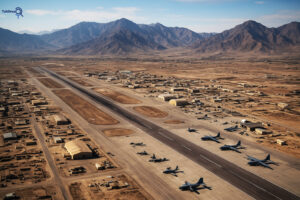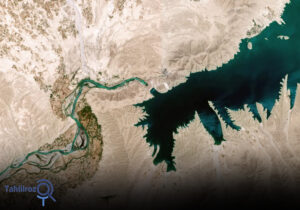The third Doha meeting on Afghanistan was held on June 30 and July 1, hosted by the United Nations, with the presence of representatives of the Taliban government and representatives of 25 countries and 5 international organizations. A meeting that did not seem to have very bright results. Perhaps the only difference between this meeting and the previous two meetings was the presence of Taliban representatives in this meeting, which had many supporters and critics.
-
How Taliban’s presence changed the third Doha meeting
What was important in the third Doha meeting was the extensive dialogues of the Taliban delegation on the sidelines of this meeting with the representatives of different countries, which were paid more attention to, than the meeting itself.
“Zabihullah Mujahid” the spokesman of the Taliban government and the head of the Taliban delegation to Qatar in Doha acknowledged that during these meetings, the special representative of Russia “Zamir Kabulov” and the special representative of Uzbekistan “Ismatullah Irgashev” declared their support for Kabul’s stances.
The Taliban delegation also met and talked with UN Under-Secretary-General Rosemary DiCarlo, but the details of this conversation have not been published, although DiCarlo had previously said that the main goal of the third Doha meeting for Afghanistan is to “normalize” the Taliban’s relations with the world.
Mujahid also met Iran’s Special Representative Hassan Kazemi Qomi and India’s Special Representative J.P. Singh and discussed strengthening relations. The news of the reopening of the Saudi embassy in Afghanistan was one of the other issues that was heard on the sidelines of these meetings. After meeting with representatives of Saudi Arabia, the Taliban delegation announced that Riyadh authorities want to reopen their embassy in Kabul as soon as possible. According to the Taliban delegation, the representative of Saudi Arabia has called for a good interaction with Afghanistan in this meeting.
“Tom West”, the US special representative for Afghanistan affairs also said: All parties raised the issue of human rights and the situation of women and girls in Afghanistan on the first day of this meeting.
David Sproul, Canada’s special representative for Afghanistan affairs, was also the only diplomat who, while officially condemning the agenda of the third Doha meeting, called the absence of women and representatives of the Afghan civil society in this meeting disappointing.
In the context of this meeting, the Taliban delegation also stated that Afghanistan’s participation in this conference shows that the Islamic Emirate is in favor of positive interaction despite all considerations, so governments and diplomats should seek interaction and understanding instead of confrontation and opposition.

-
The third Doha meeting, A competition between west and east
Afghanistan continues to face serious challenges, including international sanctions, non-recognition of the Taliban government, and human rights issues. Fulfilling the Taliban’s demands for the lifting of sanctions and the return of frozen assets could help improve the economic situation, but only if it is accompanied by specific commitments on human rights and governance.
The Doha process lacks this capability and is unable to solve the fundamental problem of Afghanistan. Basically, the founder and creator of this process is the United States with a number of countries in the region, including Qatar, Turkey, the United Arab Emirates, Uzbekistan, and to some extent Pakistan, and the United Nations is used as a tool.
In fact, the Americans and their allies want to use the Doha process to put the Taliban in a framework where they can prevent the Taliban from having close relations with countries like China, Russia, and Iran. The Doha process is an attempt to thwart the “Regional Contact Committee” and the “Moscow Format” which was launched by Afghanistan’s three neighbors (Iran, Pakistan and China) along with Russia in order to strengthen regional relations and regionally solve the Afghan crisis.
-
Was the third Doha meeting successful?
What should be noted most about the recent meeting is the conditions that facilitated the process of interaction with the Taliban. The international community, after the failure of countless plans imposed from the outside on the special conditions of Afghanistan, has now realized that the Taliban is a reality that must be accepted. Isolation of the Taliban will not only bring no benefits to the people of Afghanistan, but will also cause the crisis to intensify. Isolating the Taliban and not recognizing it during these years has not led to the improvement of girls’ education, but the intensification of sanctions has made life difficult for the people day by day.
All in all, it is far from reality if we consider the third Doha meeting as a complete success. First of all, the central issues for the parties present in the meeting had major differences. While the representatives of the United Nations and European countries sought to emphasize issues related to human rights and the status of women and girls in Afghanistan, the representatives of the Taliban focused the discussion on economic issues and economic-oriented foreign policy.
In other words, the United Nations seeks to make the recognition of the Taliban by other countries conditional on carrying out reforms in the field of women and human rights, while the representatives of the Taliban are seeking economic interaction with the countries of the world to get out of international isolation.
It can be claimed that the third Doha meeting has just brought considerable success in the process of the Taliban’s interaction with the world, but the international community should help advance goals such as lifting sanctions, improving the human rights situation, and strengthening regional cooperation with a coordinated and supportive policy.
The Taliban must also adhere to its internal and international commitments and provide opportunities for internal dialogue to establish national solidarity and stability of peace. Only with a joint and coordinated international effort and internal cooperation can peace and stability be achieved in Afghanistan and prevent the recurrence of collapse.

Mohsen Shahrafiee, analyst
